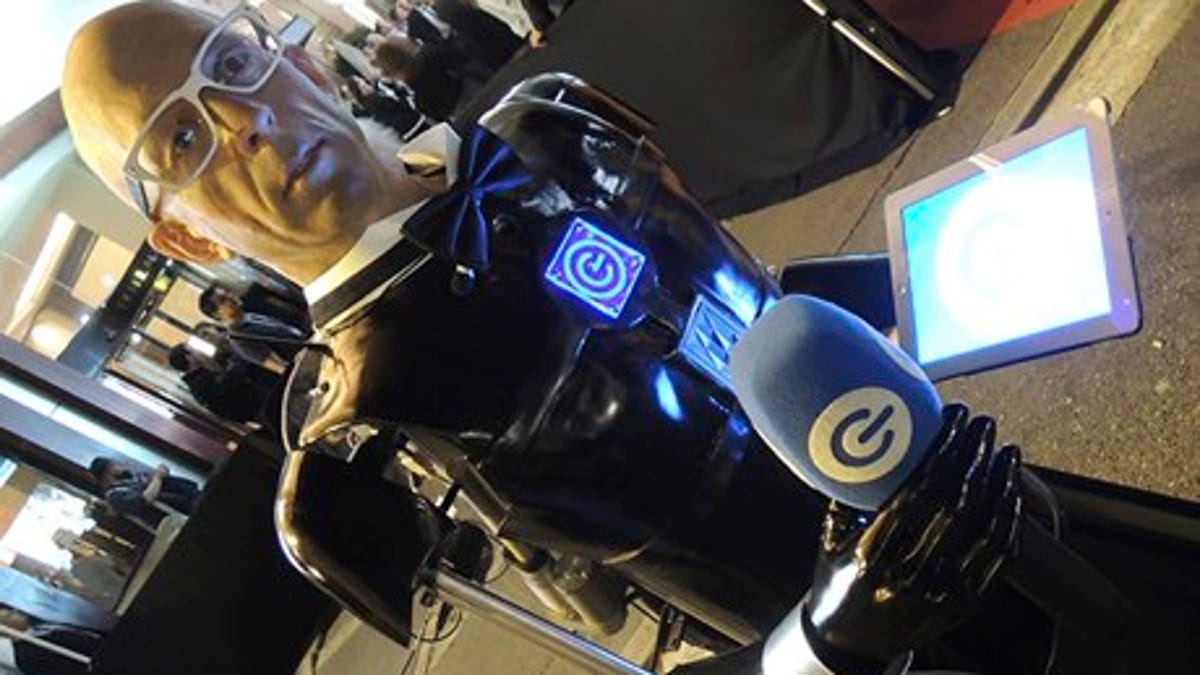RoboJase the robot comedian: Wired for wit
When a robot tries to make you to laugh, is that considered "artifarcical" intelligence? RoboJase the android debuts his comedy routine on mere mortals.

Working as a stand-up comedian isn't an easy gig. Night after night, you bare your soul in front of a microphone, hoping for nothing more than a room full of people laughing at your jokes. You refine your material, research the latest news headlines, and even make a few props to get applause and a paltry paycheck. And now, you have to compete with a robot.
Meet RoboJase, an artificially intelligent android modeled after Jason Bradbury, host of "The Gadget Show" in the UK.
"The idea for RoboJase came about when North One TV, makers of 'The Gadget Show,' tasked us with replacing ourselves with artificial intelligence," Bradbury told The Guardian.
"RoboJase is our most advanced build," Bradbury revealed in a You Tube interview. "He can move and he's quite expressive. He's got a microphone in each ear so if you talk to him, he'll turn toward you."
The android, who recently did a five-minute set at the Glee Club, is designed to tell prerecorded jokes in front of a live audience. The robot has facial-recognition technology that reads the crowd's expressions to determine which jokes are working.
"We've got a very advanced speech synthesis engine in RoboJase," Bradbury said. "I had to talk for about 15 hours, using a script, and from that, they synthesized a voice which is uncanny. We've also attached that to an artificial-intelligence engine which is online, so he can get smarter."
But professional comedians probably shouldn't drop the mic and leave the stage in defeat just yet. Robots have yet to master those subtle nuances that make a joke truly funny. Just look at Data telling a joke on past episodes of "Star Trek: The Next Generation." The only time he's funny is when he doesn't mean to be.
Or what about C-3PO from "Star Wars" or Twiki from "Buck Rogers in the 25th Century?" Those bots couldn't tell a joke to save their electronic little lives. Even most computers have such a dry sense of humor you'd be hard pressed to know if they're having a laugh or preparing to shut off all air to the ship. Right, HAL?
So herein lies the dilemma. Can a non-human be hilarious? Does a robot have the potential to connect with an audience emotionally the way human comedians can? If we can't relate to a person telling us all about his wacky brother or her annoying boss, how can we give a robot a chance to make us chuckle?
Robots have tried to master the art of stand-up comedy before. When Engineered Arts' RoboThespian took to London's Barbican Centre in August, he got an interesting response from an audience that included New Scientist reporter Celeste Biever.
"I feel less empathy for RoboThespian than for the human comics," Biever said. "When the humans take to the stage, there's an initial tension that grips me -- an intense hope that they won't disappoint -- and it's missing with RobotThespian. Presumably that's because I won't feel awkward if a pile of metal flunks onstage."
If you can't track down RoboJase in a UK comedy club, you can see him in action on The Gadget Show in December.

